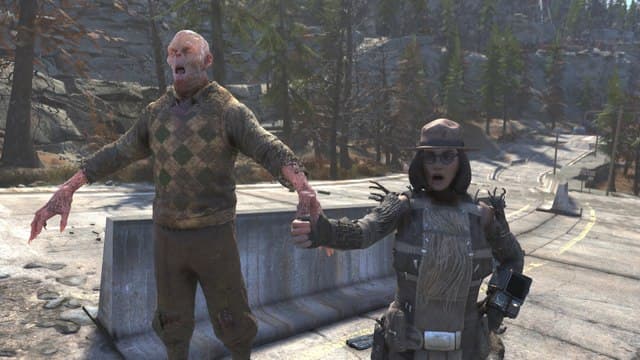Fallout 76 is widely regarded as a game with a disastrous launch followed by some level of a redemption arc (largely thanks to a community that made the best of a bad situation). Thanks to an extensive report by Kotaku, however, we now know getting the multiplayer-centric take on the post-apocalyptic series (now run by Skyrim developer Bethesda) into an even somewhat presentable state came with great human cost for workers on the team.
The report is comprised of interviews with 10 ex-Bethesda employees and its parent company ZeniMax. All of whom spoke to the outlet under the condition of anonymity. Their testimony includes stories of significant crunch time for the game’s testers, including up to 10-hour days for six days a week in the months leading up to launch. Kotaku’s story also points out that multiple workers in QA would only find relief if they were entirely removed from the Fallout 76 team and onto another project.
“Two former testers recounted that one of their colleagues said in a QA group chat after leaving the project: ‘I didn’t cry last night when I was taking a shower.’ Another said in the same chat: ‘I pulled into work today, and I sat in my car for a second, and my chest didn’t feel heavy like it normally does.'”
Much of the overwork fell onto the shoulders of the Fallout 76 QA team (a common occurrence in game development). On top of the labor troubles, Kotaku’s report says the department was also stuck with low hourly pay. Despite that, the outlet’s sources say many felt financially tied to ZeniMax and Bethesda, as the company is the largest one in the industry in the Rockville, Maryland area. When the QA team was crunching on weekends for Fallout 76, they were paid an extra $200 and given pizza.

As these conditions continued to be the norm, QA workers tried to bring the issue to the attention of Rob Gray, the QA director at ZeniMax, who denied crunch was happening in the department. Any relief workers tried to find while working on Fallout 76 during breaks was interrupted by other employees. Breaks were timed, and some told Kotaku they were even followed by other employees described as “chronic snitches” into restrooms. These testers, who had no management status or even any kind of pay bump, were designated as “coordinators” to micromanage their coworkers under the pretense of getting in management’s good graces.
The issues were only made worse by the infamous launch of Fallout 76 — including public harassment for the game’s buggy state at launch. This was amplified by testers being asked to moderate bug reports, with one source saying they remember a bug report that said, “I am going to take a gun and go to the QA department and shoot all of them.”
Beyond QA, Bethesda employees reportedly dreaded being brought on to Fallout 76. And it wasn’t just the original team. Arkane Studios’ Redfall and Bethesda’s Starfield developers would often get shuffled around to help work on the game.
The development of Fallout 76 also had a way of pushing people out of the company, as Kotaku’s sources describe several senior developers left Bethesda. Even some that had been with the company for decades. The say leadership didn’t anticipate just how much more demanding a live-service Fallout would be.
“As the game increased in size and scope, no additional time was ever really given for [testing],” one source told Kotaku. “A full pass of this huge multiplayer game with multiple expansions? [QA] got three days in a good week. It was one day if production issues resulted in a late build being delivered.”
You can continue to read the full report on Kotaku, which goes into greater detail: such as the demands of developing with the Creation Engine and further studio mismanagement. All-in-all it seems like yet another example of how the AAA games industry in its current form is unsustainable. A fact that is becoming harder and harder to keep secret at an increasing number of big-name studios — several of which are now being absorbed into bigger companies, like Microsoft’s Xbox division, amidst further controversies.


